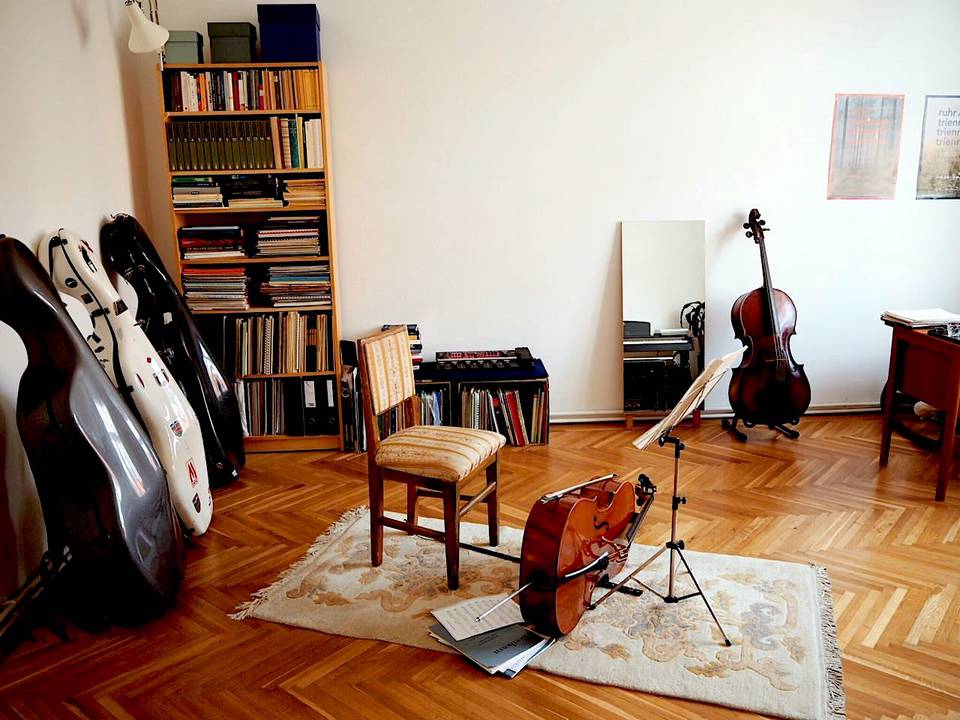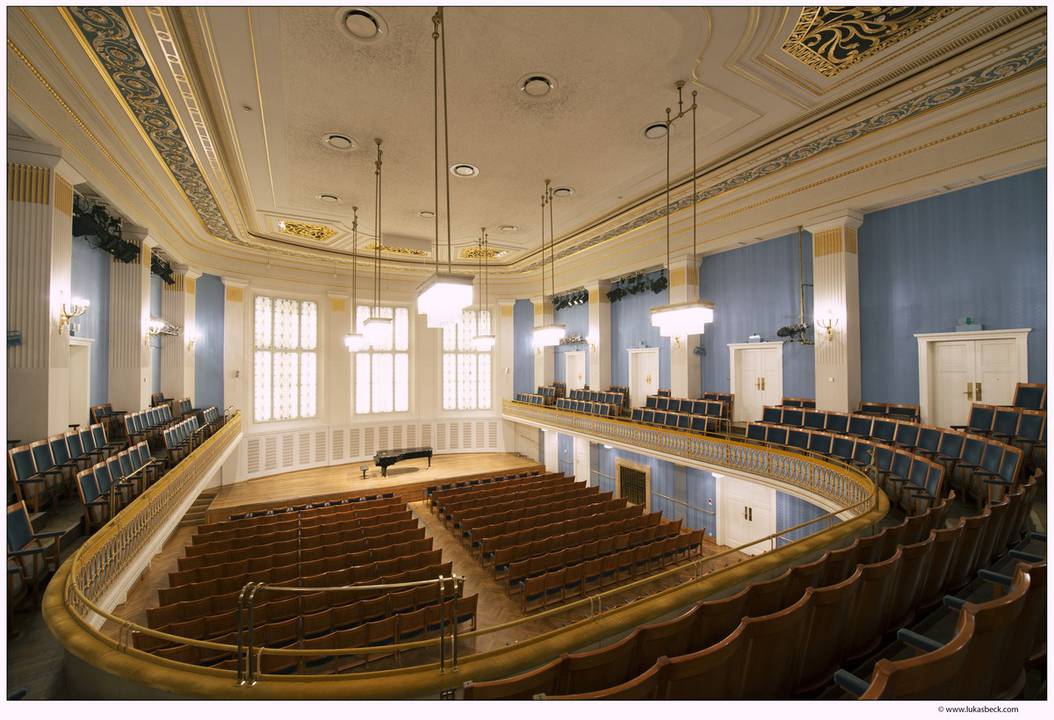Called “a shining light” among jazz guitarists by the New Yorker, and one of the top ten guitarists in the world according to Musicians Magazine, Muthspiel is known for his intuitive, probing style and penchant for improvisation that has made him one of the most influential jazz guitarists of our time. He is one half of the duo Friendly Travellers which he founded alongside drummer Brian Blade, and part of the MGT or Muthspiel-Grigoryan-Twoner trio with whom he debuted the album Travel Guide at ECM Records. They followed in 2014 with the highly acclaimed album From a Dream. In 2016 he released Rising Grace as part of a quintet with Brad Mehldau, Ambrose Akinmusire, Brian Blade and Larry Grenadier. To give something back to musicians in training, Muthspiel set up the Focusyear Project, which gives promising musicians the opportunity to spend a year practicing, performing and studying together. We recently caught up with Muthspiel to discuss among other things, his musical journey, his enthusiasm for Music Traveler and the 12th century troubadour Jaufré Rudel!
How would you describe your own guitar style?
It’s a hard question. I would say what you hear in my style is a combination of the journey I’ve been through, starting with classical music and classical guitar and discovering improvisation to spending time learning about the places where the different types of music I play come from.
What music did you have in your house growing up?
My father was the conductor of a choir where they sang Renaissance music and in the house we heard strictly classical and Austrian folk music.
What impact did discovering jazz have on your early musical development?
From an early age, my older brother Christian and I liked making up songs and improvising. Our improvisation was about playing what we heard and trying to emulate it, but it was not informed by theory or knowledge and, at the start, we didn’t know about jazz. When we found out there was a type of music where improvisation is the main thing we were puzzled and super fascinated! We dove into jazz together and went to our first jazz concerts in Graz, which of course didn’t give us the whole perspective yet, but we knew it was very different from classical. Until I was 23 I played classical and jazz, but at some point realized I didn’t have time to do both justice, so I decided to go into jazz.
Do you remember the first records you bought?
It was a serious thing to buy records when I was young. We already had a rich classical department in our home collection. So once Christian and I got interested in music, we saved up for jazz records. Our introduction was through the German record label ECM. Those first big albums were from people like Keith Jarret, Pat Metheny and Kenny Wheeler, Dave Holland the catalogue was what introduced us to jazz. Now I am on ECM, the same label that introduced me to jazz music!

As an Austrian jazz musician was it eye-opening when you started performing in the US in the 1980s?
I have a love for the States because when you told somebody about something you wanted to do the general response was always “yes, do it!” A Viennese would always say “are you sure?” Both have their value, but the supportive openness of the arts community in the US was great for my development, especially the creatively encouraging competition between musicians I encountered there. You could go out every night to hear somebody great. It was very inspiring and when you played a gig in New York colleagues from all over the place would all come to hear you, no matter how established or famous they were! There was a great sense of openness to new ideas and much less territory being protected there. In the US the whole jazz community was generally interested in each other and that was a great thing!
Who is the craziest improviser you’ve ever played with?
There were quite a few, but the pianist and composer Aydin Esen comes to mind immediately. I met Aydin in Boston when I was studying. He was the most advanced listener that I’ve ever come across. Jazz music very much depends on listening. The more we hear the more we can make good choices on what we want to add on the sound that we want to hear. He is one of those people who can hear absolutely anything and remember it. Since, in terms of listening to and retaining complex harmonies and long structures of music Aydin is one of the craziest I’ve ever come across, it means his capacity for making music is simply unbelievable!

It seems like from your own musician journey and the people you like to work with that you’re a big advocate of learning through listening and immersion.
Absolutely! In fact immersion is one of the principle concepts of a program I dreamed up called Focusyear. We run it every year in Basel for talented musicians to create a
deep experience with music without the grey zones that come with academia or schools, but by learning as a group.
Do you have any advice for young musicians?
I would say the best things that have happened for me came from my musical ambitions and not from strategies. You should trust the most private longing you have in music. Many young musicians think they have to learn everything and be good at a lot of different things, but I think encyclopedic learning is not that helpful. It’s more helpful to go deep in the area you really resonate with, even if that might be a really small area.
Tell us what you see in Music Traveler as a concept.
The idea that you can use technology to find a place, with all the instrumentation you need, to work for a few hours no matter where you are is very attractive.There are a lot of great offers and spaces I’m looking forward to playing in. When I have a rehearsal which is too loud for my apartment, Music Traveler offers the flexibility to rent a place with drums and that’s a big advantage. But it’s not only about the functionality, but the vibe of the room, which is important for musicians who travel. Next time I’m in a new city and have a day off, I would love to find the right space for 4 hours to experiment.
Have you ever had issues finding spaces that Music traveler would have helped solve?
Before I had my own studio, whenever I wanted to rehearse I would have to rent studios and it was always a kind of compromise. Either the vibe was not inspiring or the gear was not in the best shape or the piano was lousy, and you simply weren’t sure of those conditions ahead of time. Those situations could get especially frustrating in different cities and countries, so I never really thought of renting a studio on the road because it would be too complicated, but with Music Traveler it’s simple.
Are you listening to anything at the moment that might surprise our readers?
Two things come to mind.
First, I have to admit this Bon Iver thing totally got me!
The second one I discovered through a good friend, Guillermo Klein. I sat in on a composition class he gave to our students. He played us, “Lanquan li jorn son lonc en mai” a troubadour composition by Jaufré Rudel with an adventurous melody that at a certain point changes into another mode and seems very modern although it’s medieval!
Where do you see the future of music?
I would say that music is always changing and evolving and is not necessarily getting better or worse, just changing. It’s the same way Renaissance choral music didn’t get better, but as it evolved the parameters got deeper and new harmonic spheres were discovered.
In these times, where we cannot play concerts we are especially aware of the value of music as a central ingredient of life, and we have to make sure that it’s producers and creators stay free to create and interact with their audience.


